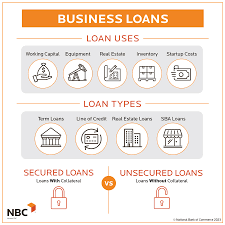Introduction –
A white-label payment gateway is a payment processing administration that is rebranded by a company under its image name. This empowers organizations to furnish clients with online payment processing services without building the payment foundation without any preparation. All things considered, organizations can utilize the innovation and services of a notable supplier of payment gateways and designer the answer for fit their requirements and brand. You can also look here for more details on, Selling Merchant Services. Payment Processing Foundation: The supplier of the white-label payment gateway has associations with various banks, card organizations, and payment techniques, as well as a completely functional payment processing framework. They deal with the specialized parts of processing payments securely. Marking and Customization: The company can mark the payment gateway arrangement assuming it wishes to offer payment processing services under its own name. This incorporates marking the UI, coordinating their logo and variety plan, and making extra acclimations to the plan and client experience.
Combination, Evaluation and Client Assistance –
By consolidating the white label arrangement inside the business’ site, portable application, or stage, clients might make payments without interference inside the business’ walls. Contingent upon the arrangement, client service could be presented by the white-label payment gateway supplier or dealt with straight by the company. You can also look further into, Start a Credit Card Processing Company. An income dividing game plan among the company and the white label supplier is standard. The income acquired from the processing of payments is divided between the two gatherings, and the firm might pay an arrangement expense and exchange costs. Consistence and Security: The supplier of the white-label payment gateway is accountable for ensuring that the payment processing arrangement adjusts with the standards and guidelines set out by the business. This likewise includes security insurances to protect private buyer data.
Advantages of Using White Label Payment Gateway –
Advantages of utilizing a white-label payment gateway include: Quicker time-to-advertise: Without significant turn of events, organizations can promptly offer payment processing services. Brand consistency: A predictable client experience can be kept up with by redoing the payment framework to mirror the company’s image. Diminished advancement and support costs: Organizations can keep away from the costs and bothers associated with setting up and keeping up with their payment framework. You can also look at, Become a Credit Card Processor. Ability and dependability: White-label merchants frequently have experience processing payments and give strong, reliable arrangements. A payment gateway and a payment processor are two fundamental parts during the time spent working with online exchanges, however they fill various needs and carry out unmistakable roles in the payment environment.
Secure Transmission –
The retail location (POS) framework or site of a merchant is associated with the monetary foundations that interaction payments by a payment gateway, what capabilities as a sort of virtual scaffold. Its fundamental occupation is to send exchange information from the retailer to the payment processor prior to returning the exchange result to the retailer and the client securely. You can also look at, How to Become a Payment Service Provider. To empower secure transmission over the Web, payment gateways encode delicate payment data, (for example, credit card numbers). They every now and again offer capabilities like 3D Secure, address confirmation, and extortion recognition and assurance. Clients give their payment data at the checkout interface, which is typically given by payment gateways.
Payment Processor –
A monetary establishment or specialist co-op that deals with the approval, clearing, and repayment of payment exchanges is alluded to as a payment processor, once in a while known as a merchant acquirer. To decide if there are an adequate number of assets and whether the exchange ought to be handled once a client makes a payment, the payment processor reaches out to the client’s responsible bank. The payment processor controls the cash move from the client’s record to the merchant’s record in the event that the exchange is supported. Different backend errands, for example, group processing of exchanges, revealing, and compromise, are additionally dealt with by payment processors. Payment processors are merchant-confronting, and that implies they work behind the scenes to accelerate the exchange of assets.





